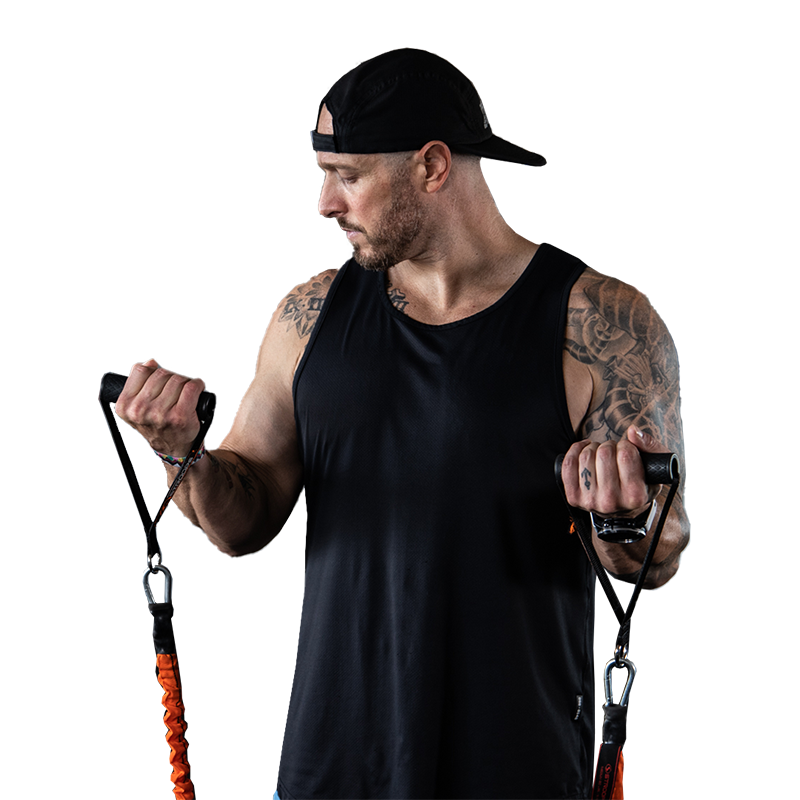Did you know there are roughly 50,000 fitness influencers on Instagram? There are even more across social media channels such as Tiktok, Facebook. There’s no shortage of people online who have all the tips and tricks to make you the fittest. Or, at least, they claim to.
More and more, however, consumers are beginning to realize that not all fitness influencers are giving out credible information. The most recent example of this is Brian Johnson. The self-proclaimed “Liver King” heavily promoted the “ancestral” diet of animal organs and raw meat. Thanks to his incredible physique, it appeared he had the inside curve on how to achieve real muscle. Roughly 4.2 million followers bought in. Then, the fitness world learned shockingly that Johnson’s physique mostly came from taking steroids—a lot of them.
In the world of social media, it’s dangerous to be deceived. This is your body and personal health at stake. Wrong information and bad advice can do a lot more than just be ineffective. You could injure yourself, incur health problems, or even put your life at risk.
Here’s what you should consider when you ingest fitness and health advice through social media:
1. Look for certifications and education.
In some alternate reality, being a social media influencer requires a license of some kind, but that’s not the case here. All it takes for people to take you seriously online is to be popular. You don’t have to be right.
Many personal trainers and fitness influencers will include their certifications and credentials in their profile. If a fitness influencer doesn’t have those credentials available, you’ve already hit a red light. Taking advice from a non-certified fitness influencer is about as wise as taking real estate advice from someone who lives in a very nice apartment.
Of course, it’s always possible for people to lie about their credibility. That’s why many licensing organizations allow consumers to verify their trainer’s certification and if it’s up to date.
Certification should be the ground floor of trustworthiness if you’re looking for fitness advice. If the influencer has an education in the space of fitness, even better. Having a degree in kinesiology, exercise science, sports therapy, or something similar means that person has actually gotten into the books and research on how to maintain your best health.


2. Consider their experience in the field.
Social media may cater to the young, but experience in training and exercise is far more important. You should value how long someone has been in the industry perhaps even more than how they look.
Despite how many people work out, the world of fitness is complex and has a lot of nuance to it. Not only that, but information can almost constantly change. Pay attention to influencers who have been around long enough to know what works and what doesn’t. Fads come and go, and experienced professionals last through them.
3. Evaluate their content
If the influencer talks about getting fit “fast” or “easy,” just stop listening. Progressing in weight loss or strength training is hard. It’s always going to be hard, and nothing will change that.
In harmony with that very important truth, you should always make sure you’re consuming content responsibly. If an influencer’s messaging is inconsistent or isn’t evidence-based, that’s trouble. Evidence-based information is about a lot more than just “It worked for me; it’ll work for you!” A good influencer does their research to avoid false claims or spread misleading information.

You may be tempted in your drive to reach your fitness goals to start taking advice rapidly. However, you should take the time to build a better understanding of what that influencer’s message is. Make sure before you act as to whether those solutions presented will work the same for you.

4. Look at their client results
And speaking of working the same for you…
Having third-party voices that can validate an influencer’s content goes a long way. Whether through transformation photos or client testimonials, you want to know that an influencer’s fitness advice has actually worked.
In this particular kind of data gathering, be extra careful. A lot of people have learned how to convincingly fabricate this kind of information through AI or other methods. It can be hard to tell if a client testimonial is a real person.
Many influencers are marketing products or solutions that are not their own. In that case, make sure to research beyond just what the influencer says. The whole reason a company is using that influencer is a bet on you believing whatever they say. Be smarter.
5. Consider their approach to health and fitness.
If you’ve thoroughly vetted a fitness influencer, evaluated their content, and checked their results, you still need to make the decision as to whether their way is best for you.
Consider whether the influencer’s approach to fitness helps you reach your specific goals. An influencer in the bodybuilding world probably won’t help you much if you’re focusing on improving your flexibility.

Consider also that many fitness influencers do what they do for a living, such as Dwayne “The Rock” Johnson or Caroline Girvan. You won’t see the same results as them while needing to keep up with your own job and family life. Keep your expectations realistic and don’t get caught up in the aesthetics.
Tie It Up
Ultimately, remember that evaluating and being responsible about the information you take in for fitness is important to your physical health and well-being. Social media influencers in the fitness world have a wide range of opinions and perspectives. Yet, not all of them are worth listening to. Place a high value on fitness influencers that are educated, certified, and have experience. Look at their content to determine if it’s correct, has worked for other people, and will be in line with your goals.

0 Comments